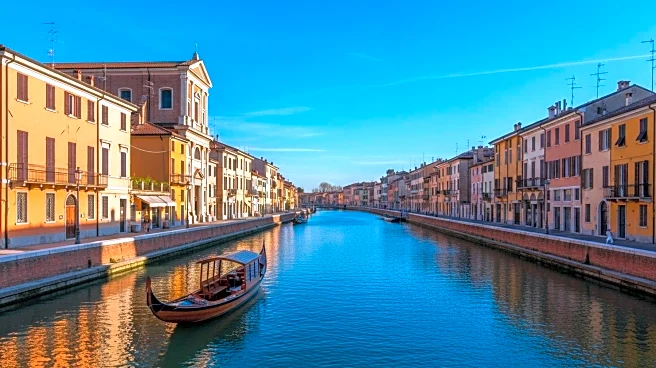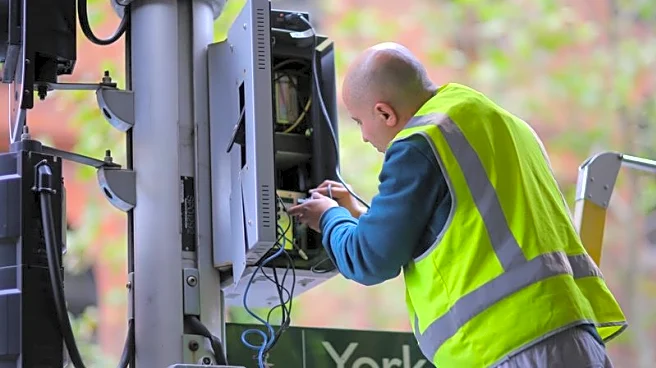What's Happening?
Ravenna, a city in Italy's Emilia-Romagna region, is emerging as a less crowded alternative to popular destinations like Venice and Rome. Known as Italy's 'Mosaic Capital,' Ravenna features eight UNESCO World Heritage Sites and offers a rich gastronomic culture. The city is part of a three-year plan called the 'FOOTPRINTS project,' launched in December 2024, aimed at promoting regenerative tourism. This initiative seeks to balance Ravenna's growing popularity with cultural preservation and community involvement. Efforts include investing in accessible infrastructure and encouraging sustainable tourism practices through a gamification system that rewards tourists for making environmentally friendly choices.
Why It's Important?
The FOOTPRINTS project in Ravenna is significant as it addresses the broader issue of overcrowding in popular Italian tourist destinations. By promoting sustainable tourism, Ravenna aims to preserve its cultural heritage while providing a more authentic experience for visitors. This approach could serve as a model for other cities facing similar challenges, potentially influencing tourism policies across Italy and beyond. The initiative also highlights the importance of involving local communities in tourism development, ensuring that economic benefits are shared and cultural integrity is maintained.
What's Next?
As Ravenna continues to implement the FOOTPRINTS project, the city may attract more tourists seeking a quieter and more sustainable travel experience. The success of this initiative could lead to increased investment in green infrastructure and further development of sustainable tourism practices. Other Italian cities might adopt similar strategies to manage overcrowding and preserve their cultural sites. The project's emphasis on community involvement and sustainable choices could also inspire global tourism trends, encouraging destinations worldwide to prioritize environmental and cultural sustainability.
Beyond the Headlines
Ravenna's approach to tourism highlights the ethical dimension of travel, emphasizing the responsibility of tourists to respect and preserve the destinations they visit. The city's focus on sustainability and community involvement reflects a growing trend in the tourism industry towards more responsible and ethical travel practices. This shift could lead to long-term changes in how destinations are marketed and managed, promoting a more balanced relationship between tourists and local communities.










